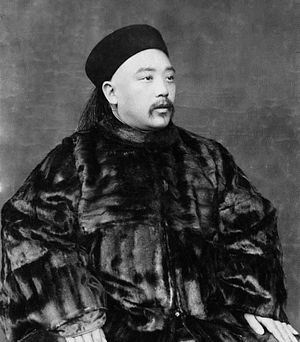Compared with the high-profile national Memorial Day for the Nanjing Massacre last month, the date January 18 passed uneventfully. Chinese media appeared to have forgotten that one hundred years ago, on exactly that day, Japan presented Chinese President Yuan Shikai (Yuan Shih-Kai) with requests that would have turned China into a de facto Japanese protectorate.
The Japanese requests included five groups of secret demands that became known as the Twenty-One Demands. Groups One and Two were designed to confirm Japan’s dominant position in Shandong, southern Manchuria, and eastern Inner Mongolia. Group Three would acknowledge Japan’s special interests in an industrial complex in central China. Group Four forbade China from giving any further coastal or island concessions to foreign powers except for Japan. The most outrageous was Group Five. Group Five required China to install Japanese advisors who could take effective control of Chinese government, economy, and military. These demands would have had a similar impact to that of what the Japan-Korea Annexation Treaty had on Korea in 1910.
These notorious demands were issued at a time of shifting balance of power in East Asia. With the Qing dynasty’s humiliating defeat in the first Sino-Japanese War (1894-95), regional dominance for the first time had moved from China to Japan. Japan’s ambitions in China were further emboldened by its decisive victory in the Russo-Japanese War (1904-05), which affirmed the Japanese presence in south Manchuria and Korea. The 1911 Revolution brought an end to the Qing dynasty and ushered in the Republican era in China, but China remained a pushover in the face of pressure from Western powers. Furthermore, Yuan’s ruling status itself was shaky due to threats from competing local warlords. World War I granted Japan a perfect opportunity to push the envelope even more with China. As the war was underway in Europe, the Japanese hoped that other major powers would show little interest in countering Japanese expansion in China. For these reasons, Japanese Foreign Minister Kato Takaaki was convinced that the filing of an ultimatum buttressed by the war threat would cause China to accept all the demands.
Fully aware of the negative reaction the demands would cause, Japan asked China to keep them confidential and threatened to take “drastic actions” if they were leaked. Contrary to the popular Chinese image of Yuan being a traitor, archived history suggests that Yuan and his top associates worked hard to minimize the harms caused to China’s sovereignty by the Twenty-One Demands. Soon after studying the Japanese request, Yuan instructed top Chinese diplomats that by no means should China submit to the demands of Group Five. Headed by then Foreign Minister Lou Tseng-Tsiang, the Chinese negotiators sought to stall the negotiation process for as long as possible. Between February 2 and April 17, twenty-five rounds of negotiations were held. Disregarding the Japanese threat, Yuan had his political advisor leak the full contents of the Twenty-One Demands to a correspondent for the Times in Beijing, who then reported them on February 12. In seeking international support, Yuan also relied on the traditional Chinese strategy of playing one power against another (yi yi zhi yi). He hoped that a perceived threat to European and U.S. political and economic interests in China would lead them to constrain Japan’s aggressiveness. Although the United States continued with a low-risk strategy in China, Secretary of State William Jennings Bryan warned that the United States would not recognize infringements on Chinese sovereignty and the Open Door policy. As author Bertram Lenox Putnam Weale documented in the book An Indiscreet Chronicle from the Pacific, the possible intervention of Great Britain and the United States was indeed a concern for Japan in deliberating what final steps to take on May 6. In addition, Yuan also sought to affect Japanese domestic politics by mobilizing the support of Genro, who were angered by the government’s failure to consult them before drawing up the demands. As the negotiations evolved into an inevitable crisis at the end of April, the open opposition of elder statesmen like Matsukata played a decisive role in forcing the Japanese government to drop the demands of Group Five in the ultimatum delivered to China on May 7.
Not surprisingly, Yuan, who had no intention of risking war with Japan, accepted the ultimatum on May 9. The final form of the treaty was signed on May 25, 1915. With the removal of the most odious provision, however, the new treaty gave Japan no more than what it already had in China. Yuan, whose credibility and popularity as a leader was further weakened as a result of his appeasement policy, viewed accepting the treaty as a “terrible shame” (qichi daru) and made May 9 China’s National Humiliation Day. The Twenty-One Demands nurtured a considerable amount of public ill-will towards Japan, and the upsurge in nationalism is still deeply felt today in China’s handling of Sino-Japanese relations.
To be sure, times have changed. This time, the pendulum of power is swinging in China’s favor. Given the ongoing territorial disputes in East Asia, the episode that occurred exactly one century ago can still provide critical insights into how a rising regional hegemon like China should behave, and how less powerful states could play the power game to better protect their national interests.
Yanzhong Huang is Senior Fellow for Global Health at the Council on Foreign Relations. This post appears courtesy of CFR.org and Forbes Asia.
































